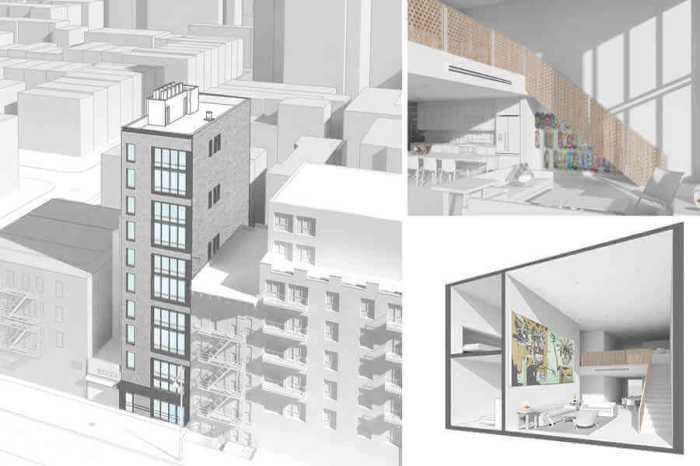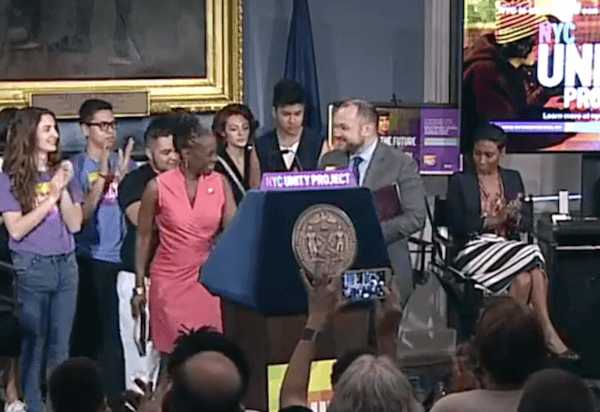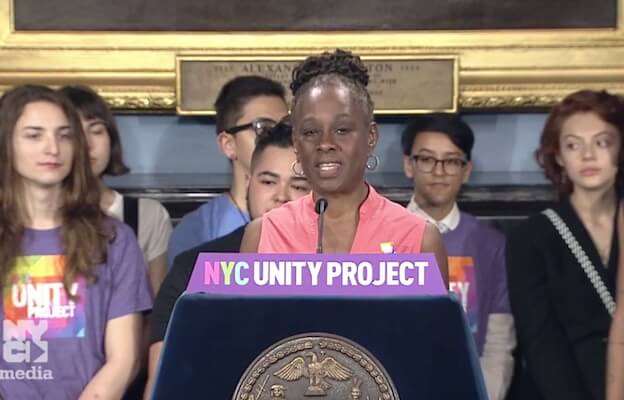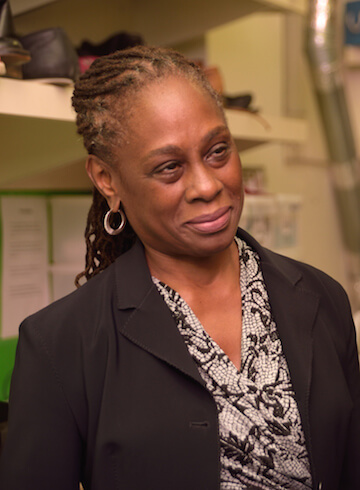More than two years after the emergence of the COVID-19 pandemic, providers serving LGBTQ youth are continuing to see demand for housing, mental health services, and other needs — and the monkeypox outbreak is further adding to the stressors facing the community.
The COVID-19 pandemic compounded existing problems facing the needs of vulnerable populations, including LGBTQ youth, and led other issues to rise to the forefront. Leaders at the Hetrick-Martin Institute, which serves LGBTQ youth between the ages of 13 and 24, have noticed the evolution of those needs in the years since COVID-19 first arrived.
“In our youth survey for 2017-2020, young people would say the reason why I’m here is because I want a job, I want to be able to buy things, and get away when I can — and the second thing they would mention is a counselor,” Soraya Elcock, Hetrick-Martin Institute’s chief strategy officer, told Gay City News. “In 2021, we saw a change in that. There was an increase in young people who came in talking about looking for a counselor rather than a job.”
Elcock is hopeful that at least part of the increase in demand for counselors is driven by a decrease in stigma associated with asking for help. Still, Elcock said, the pre-pandemic needs of LGBTQ youth did not disappear after COVID-19 permeated the city, and many of the problems facing them prior to the pandemic have sharply increased — including homelessness.
Alex Roque, the executive director of the Ali Forney Center, said the effects of the pandemic have “destabilized” everything from housing markets to job markets.
“And the same is true for the young people we serve,” said Roque, whose organization serves homeless youth and helps them gain their independence through housing, employment, and other forms of assistance. Those hardships are even more troubling when considering that many of those youth were previously deprived of a proper home environment before.
“Our kids are reminded more than ever that they are not welcome at home,” Roque said.
The Ali Forney Center is working to combat youth homelessness by renting more than a dozen spaces to house LGBTQ youth, but the organization has also launched a campaign to raise funds to purchase a townhouse in Harlem for trans and gender non-conforming youth. The organization needs just over $1 million more to reach a goal of raising $5.8 million to purchase that home, according to Ali Forney Center’s development director, Zachary Cohen. The organization is hoping to purchase a home that it is already renting.
“The townhouse would be a big deal for us for a number of reasons,” Cohen said. “It will really elevate the programming we can offer. Currently we have a program for trans people, but it is in an unsafe neighborhood and [space] is tight.”
Roque spoke to Gay City News just days after Mayor Eric Adams unveiled a homelessness plan propped up by a $15 million grant from the US Department of Housing and Urban Development as well as other public and private funding. The plan includes new rapid rehousing units, a street outreach program for homeless youth, and an objective to create new shelters for LGBTQ people, among other elements. Roque said he welcomed the intentions of the Adams administration while also suggesting that there is room for improvement.
Other organizations are also looking to government leaders to step up for LGBTQ youth. From a statewide standpoint, Elcock said New York State must foster an atmosphere where people feel valued, accepted, and seen, rather than targeted or marginalized. Mental health services, Elcock said, should be free and available with a focus on responding to the unique needs of diverse communities.
“When serving LGBTQ youth, we need to make sure the models of mental health services aren’t stuck in a paradigm of ‘this is how we do mental health’ and ‘these are the diagnoses,’” Elcock said. “One thing that has become clear in our work — and we’ve had learning sessions with the Department of Health — is to do liberation-focused healing so we can look at the systemic oppression, racism, homophobia, transphobia, and poverty.”
Like at Hetrick-Martin Institute, Identity House — which provides counseling for LGBTQ adults — has seen upticks in demand for counseling services in recent years. Identity House joined countless others in introducing virtual services.
“What we saw throughout COVID was that a lot of people had a lot of time alone to themselves and had time to reflect,” said Abby Callaghan, a peer counselor and secretary at Identity House. “A lot of our client base is people wanting to talk to us about coming out, but we also have people talking to us about communities or navigating work and family.”
Callaghan and Elcock both pointed to significant increases in people looking to discuss their gender identity. Most recently, a key topic has been the monkeypox outbreak, which has led to concern among folks who have followed the bungled rollout of the vaccine as well as the ongoing spread of cases in New York City and elsewhere.
“Monkeypox is something our clients have mentioned,” Callaghan said. “I think there is a lot of frustration… A lot of very young folks are scared, not to mention coming off almost three years of COVID. There is a lot of anxiety.”
Elcock stressed the importance of educating young people about what monkeypox is as well as informing them about how to get vaccinated, where to vaccinated, and who is eligible to get vaccinated.
The Ali Forney Center, Roque said, added monkeypox to the organization’s weekly COVID task force initiative comprised of agency leaders, mental health officials, and other leaders in the agency to educate people about the outbreak and about vaccination and harm reduction approaches. At the time of the interview, Ali Forney Center organization was planning an informational session and town hall with clients and medical experts to help younger folks and staff members learn more about the outbreak.





































